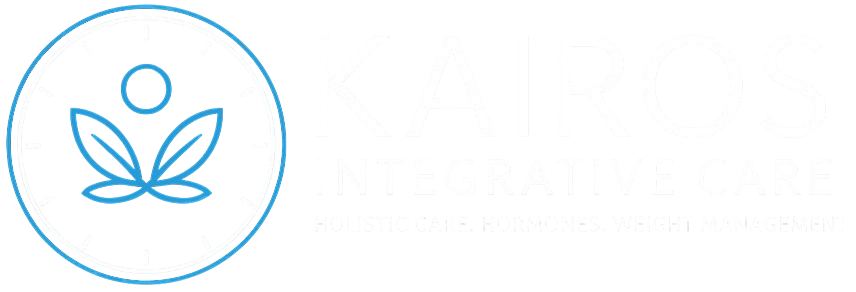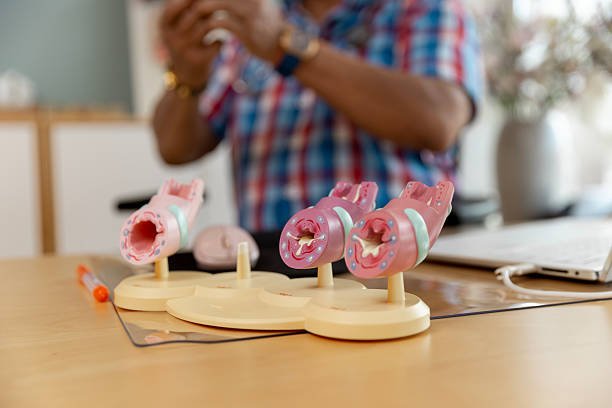When we see elevated LDL cholesterol on labs, most patients assume it’s coming from the food they eat. But cholesterol metabolism is more complex than just eggs or butter.
One of the most overlooked aspects of heart health is something called LDL clearance, which is your body’s ability to remove bad cholesterol from the bloodstream once it’s no longer needed. This process is driven by your liver, bile production, hormones, and overall metabolic health.
At Kairos, we help patients ask better questions:
- Why is my body not clearing LDL the way it should?
- What’s really driving these numbers?
This article isn’t about blaming your diet. It’s about looking deeper into what might be blocking your body’s natural ability to clear cholesterol.
How LDL Clearance Works (And Why It Can Break Down)
Your body doesn’t just make cholesterol; it also has to clear it. That job mostly falls to your liver, which acts like a filter. Once LDL cholesterol has done its job, the liver steps in to remove it.
But for this to happen smoothly, a few key things need to be working well:
- LDL receptors that catch and clear LDL from your blood
- Good bile flow so your body can flush cholesterol out
- Healthy thyroid function, which signals your liver to clear LDL
- A liver that’s not overworked or inflamed
When even one of these systems isn’t working right, LDL can linger in your bloodstream longer than it should, and that’s when it becomes a problem.
Surprising Reasons LDL Clearance Slows Down
You don’t have to have a major disease for your clearance to be compromised. Below are lesser-known reasons we uncover in the clinic that affect your body’s ability to clear LDL efficiently:
1. Subclinical Hypothyroidism
Even slight thyroid imbalances can slow LDL clearance. Subclinical hypothyroidism is often missed in standard labs but is a known contributor to elevated LDL. A recent study shows that even minor thyroid dysfunction significantly elevates LDL levels.
2. Poor Bile Flow
Your body eliminates cholesterol through bile. If your bile flow is poor, or your gallbladder is under-functioning or removed, cholesterol simply doesn’t leave the body effectively. Common signs include bloating after meals, greasy stools, or discomfort when eating fatty foods.
3. Choline Deficiency
Choline is essential for bile production and liver health. It’s found in eggs, liver, and certain animal foods. If you’re plant-based or avoid eggs, you might be lacking this key nutrient. Choline deficiency can lead to fatty liver and impair your ability to clear cholesterol.
4. Chronic Stress
Stress isn’t just emotional; it affects your metabolism. Stress hormones like cortisol disrupt thyroid function and raise inflammation, both of which reduce LDL receptor activity. Many patients with “mysterious” high LDL also report high stress or burnout.

5. Genetics (like ApoE4):
Your genes play a big role in how your body handles cholesterol. People with the ApoE4 gene often have a harder time clearing LDL, which can raise their risk for heart disease. This means they may need to be more mindful of saturated fat and focus more on reducing inflammation through targeted nutrition and lifestyle support.
Restoring LDL Clearance at Kairos Integrative Care
We don’t chase numbers. We support your body’s natural ability to clear cholesterol. Here’s how:
Supporting Liver and Bile Function
We use nutrients like choline, taurine, beetroot, and artichoke extract to help bile flow more efficiently. If your gallbladder has been removed or is sluggish, we support bile production through gentle digestive aids or bile salts to ensure proper cholesterol elimination.
Advanced Functional Labs Testing
To truly understand what’s interfering with your cholesterol clearance, we do some tests like Full thyroid panel (free T3, free T4, reverse T3), liver enzymes testing (AST, ALT, GGT), and LDL particle size testing via NMR profile, to see how your body is processing and clearing fats.
Address Chronic Stress and Inflammation
Chronic stress can block LDL clearance by affecting thyroid hormones and driving inflammation. We use adaptogens and nervous system support like breathwork, sleep optimization, and circadian rhythm alignment to reset your stress response
Customize Nutrition Based on Your Labs
If your labs show ApoE4, we reduce saturated fat and lean into heart-healthy fats like olive oil and avocado. If thyroid function is low, we support it with selenium-rich foods and stress management. We also ensure your body gets enough choline from foods like eggs and liver or from supplements.
We create a plan that’s based on your labs, your symptoms, and how your body works, not a one-size-fits-all approach
Conclusion
If your LDL is high and no one’s checked your thyroid, bile flow, or stress levels, you’re not getting the full story. At Kairos Health Integrative Primary Care, Lola, one of our board-certified nurse practitioners, uses advanced labs and a functional medicine lens to find out why your cholesterol is elevated and how we can support your body in clearing it naturally. We accept most major insurance plans, including Blue Cross Blue Shield, Aetna, Cigna, UnitedHealthcare, Tricare, Texas Children’s, Memorial Hermann, and Ambetter.
If you’re ready to stop guessing and start healing, book your personalized cholesterol review today




